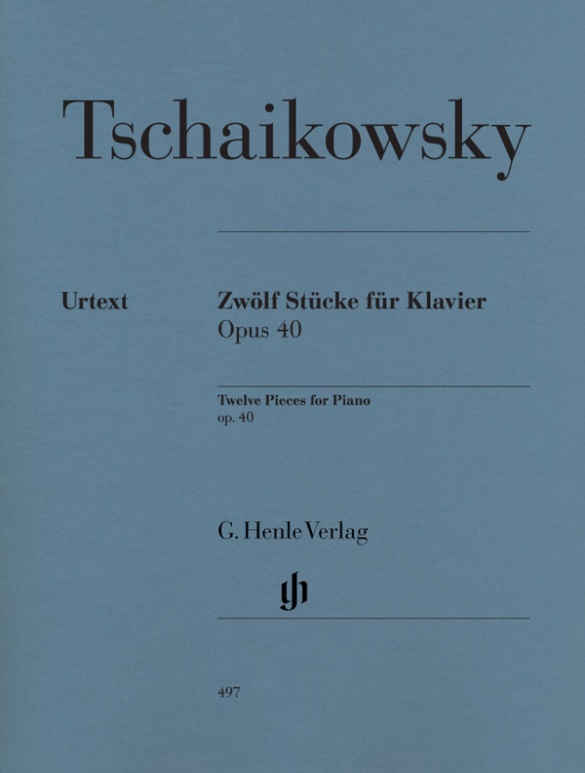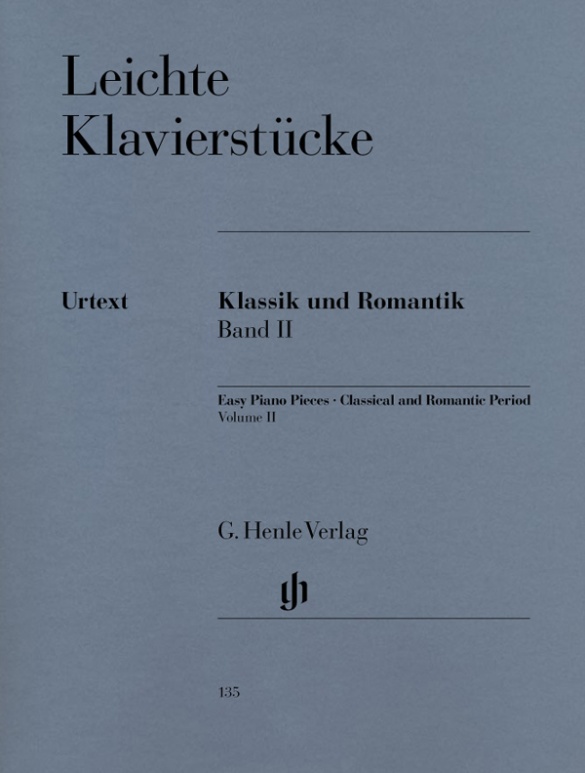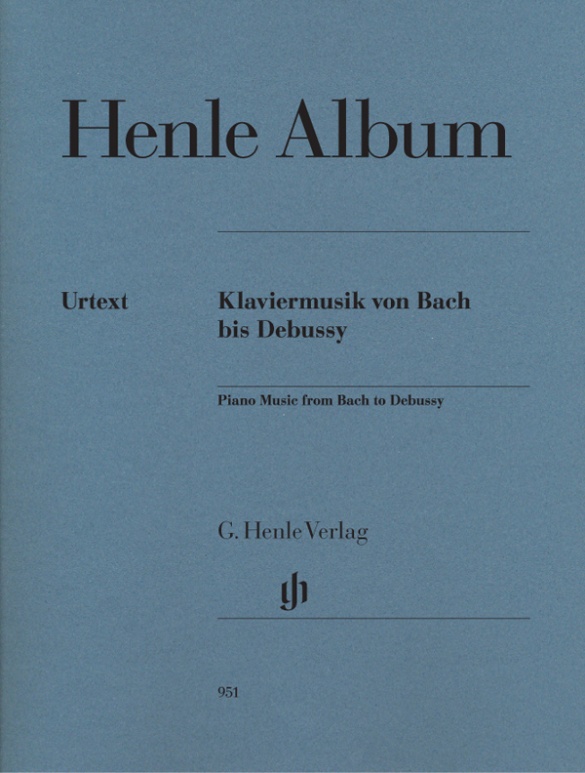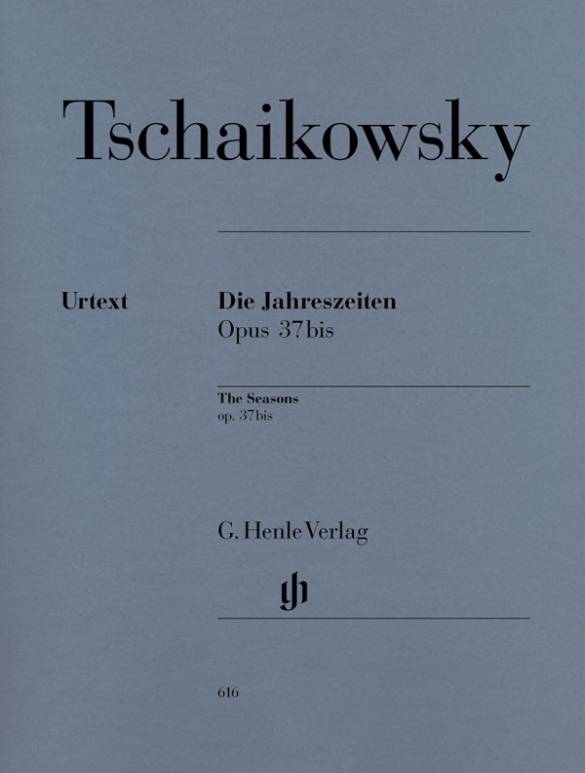

Peter Ilich Tchaikovsky
The Seasons op. 37bis
As well as Tchaikovsky’s famous Piano Concerto, his extensive oeuvre for solo piano also makes an important contribution to romantic piano music. It includes “The Seasons” op. 37 – pleasant playable pieces that reflect a bygone bourgeois atmosphere and can therefore be assigned to the category of “domestic music”. These twelve intimate mood-pictures enable the pianist to plot the course of the twelve months of the year. No. 11, “Troika”, displays a Russian character particularly well, when in November the sleigh-bells and the cheerful singing of the passengers create an enchanting sound. Our edition is based on the autograph and the Russian first edition; moreover it contains Klaus Schilde’s highly regarded fingerings.
Content/Details
About the Composer
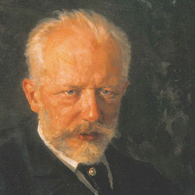
Peter Iljitsch Tschaikowsky
Most important and first professionally trained Russian composer of the nineteenth century; main works include operas, ballet music, six symphonies, three piano concerti, and one violin concerto, as well as songs, chamber music, and piano music.
| 1840 | Born in Votkinsk on May 7, the son of a mining engineer. |
| 1849–59 | Educated as an attorney. |
| 1861–65 | Study of music; he numbers among the first graduates of the St. Petersburg Conservatory. Piano studies with Anton Rubinstein. |
| 1866–76 | He relocates to Moscow to teach harmony, instrumentation, and free composition at what later became the Moscow Conservatory. Composition of Symphonies No. 1 through 3 (Opp. 13, 17, 29), the Piano Concerto No. 1 in B-flat minor, Op. 23, the three string quartets (Op. 11 in 1871, Op. 22 in 1874, Op. 90 in 1876). |
| 1868–76 | Active as a reviewer. He attends the premiere in Bayreuth of Wagner’s “Der Ring des Nibelungen” in 1876. |
| from 1877 | Travels at home and abroad. Beginning of patronage from Nadezhda von Meck. Composition of the Symphony No. 4 in F minor, Op. 36, premiered in Moscow in 1878. Premiere of the ballet “Swan Lake,” Op. 20. |
| 1879 | Premiere in Moscow of “Eugene Onegin,” his best-known and most important opera. |
| 1884 | Premiere in Moscow of “Mazeppa.” |
| from 1887 | Regular performances as conductor of his and others’ work. He is regarded abroad as the most important exponent of Russian music |
| from 1888 | Granted an annuity for life by the Tsar. |
| 1888 | Composition and premiere in St. Petersburg of the Symphony No. 5 in E minor, Op. 64; fate motive appears as a kind of “idée fixe.” |
| 1892 | Premiere of the ballet “The Nutcracker,” Op. 71. |
| 1893 | Composition of the Symphony No. 6 in B minor (“Pathétique”), Op. 74, which is premiered in St. Petersburg in October that year. |
| 1893 | Death from cholera in St. Petersburg on November 6. |
About the Authors

Klaus Schilde (Fingering)
Prof. Klaus Schilde, born in 1926, spent his childhood in Dresden. There he was greatly influenced by Walter Engel, who taught him the piano (Kodaly method), composition and violin. From 1946–1948 he studied at the music conservatory in Leipzig with Hugo Steurer. After moving to the west in 1952 he studied with Walter Gieseking and Edwin Fischer, as well as with Marguerite Long, Lucette Descaves and Nadia Boulanger in Paris.
Schilde won numerous prizes. From 1947 onwards he gave concerts as a soloist and chamber musician on almost every single continent with renowned orchestras. He taught at the music conservatories in East Berlin Detmold, West Berlin, Munich, Tokyo (Geidai) and Weimar. From 1988–1991 he was President of the Staatliche Hochschule für Musik und Theater in Munich, where he also taught for decades as a professor. There are numerous radio and television broadcasts with Klaus Schilde as well as CD recordings. Schilde has contributed fingerings to almost 100 Henle Urtext editions.
Prof. Klaus Schilde passed away on 10 December, 2020.
Product Safety Informations (GPSR)

G. Henle Verlag
Here you can find the information about the manufacturer of the product.G. Henle Verlag e.K.
Forstenrieder Allee 122
81476 München
Germany
info@henle.de
www.henle.com
Bei einer Urtextausgabe des Münchner Henle-Verlags versteht es sich von selbst, dass alle Unklarheiten, die sich aus den Quellen ergeben, im Vorwort ausführlich dargestellt und auch erläutert werden.
Das MusikinstrumentClear and easy to read. This is published in the large format, including much detail in the commentary for this edition.
Sheet Musicrecommendations
autogenerated_cross_selling
Further editions of this title
Further editions of this title


